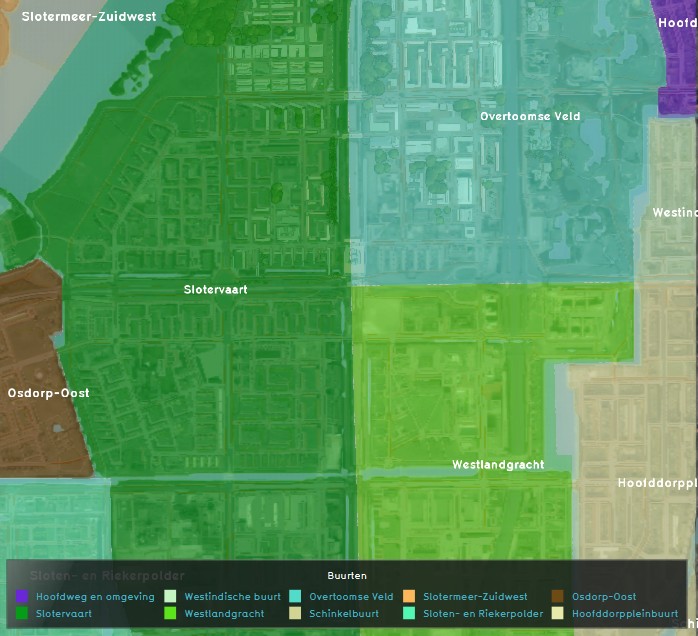Neighborhood: Difference between revisions
Jump to navigation
Jump to search
No edit summary |
|||
| Line 11: | Line 11: | ||
==How-to's== | ==How-to's== | ||
* [[How to edit a Neighborhood | * [[How to edit a Neighborhood]] | ||
* [[How to add, remove and duplicate a Neighborhood]] | * [[How to add, remove and duplicate a Neighborhood]] | ||
Revision as of 09:19, 6 October 2022

Neighborhoods in the Tygron Platform are mutual exclusive spatial areas that divide a city/ village. These areas do not overlap and are, when available, based on real (historical) data. This data is retrieved from CBS at the level of neighborhoods ("buurten"), as opposed to the larger districts ("wijken").
It is possible to build up a project session, by not making all available neighborhoods active in a specific scenario. This would facilitate an area of focus, with a small neighborhood only active, so that users can familiarize themselves with the Tygron Platform in a secluded area of the project, before progressing into the more complex spatial issues at hand.
How to (de)activate Neighborhoods per scenario:
- Load or create a project with existing Neighborhoods in the editor
- From the Ribbon of the editor, select Multi-Scenario > Scenarios
- On the Left Panel of the Editor, select (expand) the scenario where neighborhoods need to be (de)activated
- On the bottom of the list the just expanded options for the selected level, select 'Events'
- Press the Add button below the list on the Right Panel of the editor to add a new server event.
- Select the event that has been added in the list above.
- In the Bottom Panel, select the LogicEventType NEIGHBORHOOD_SET_ATTRIBUTE.
- For the selected event, select the neighborhood that you want to (de)activate.
- Fill in the attribute ACTIVE for the Valid attribute name.
- Use the Attribute value 0 to deactivate and 1 to activate the neighborhood.